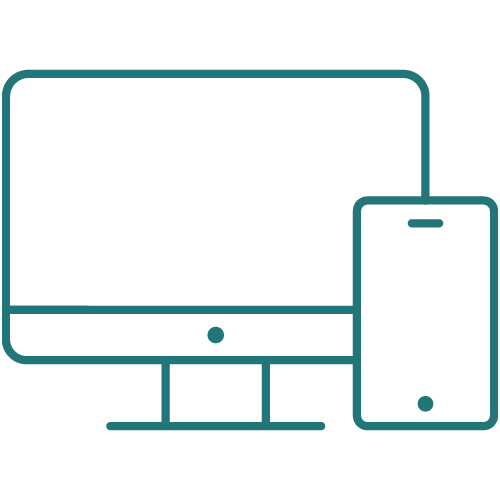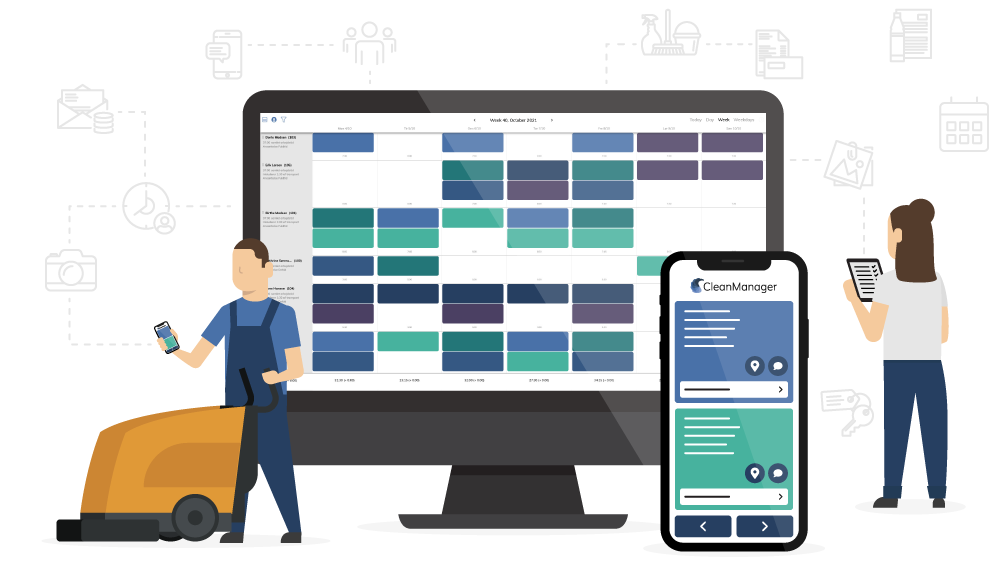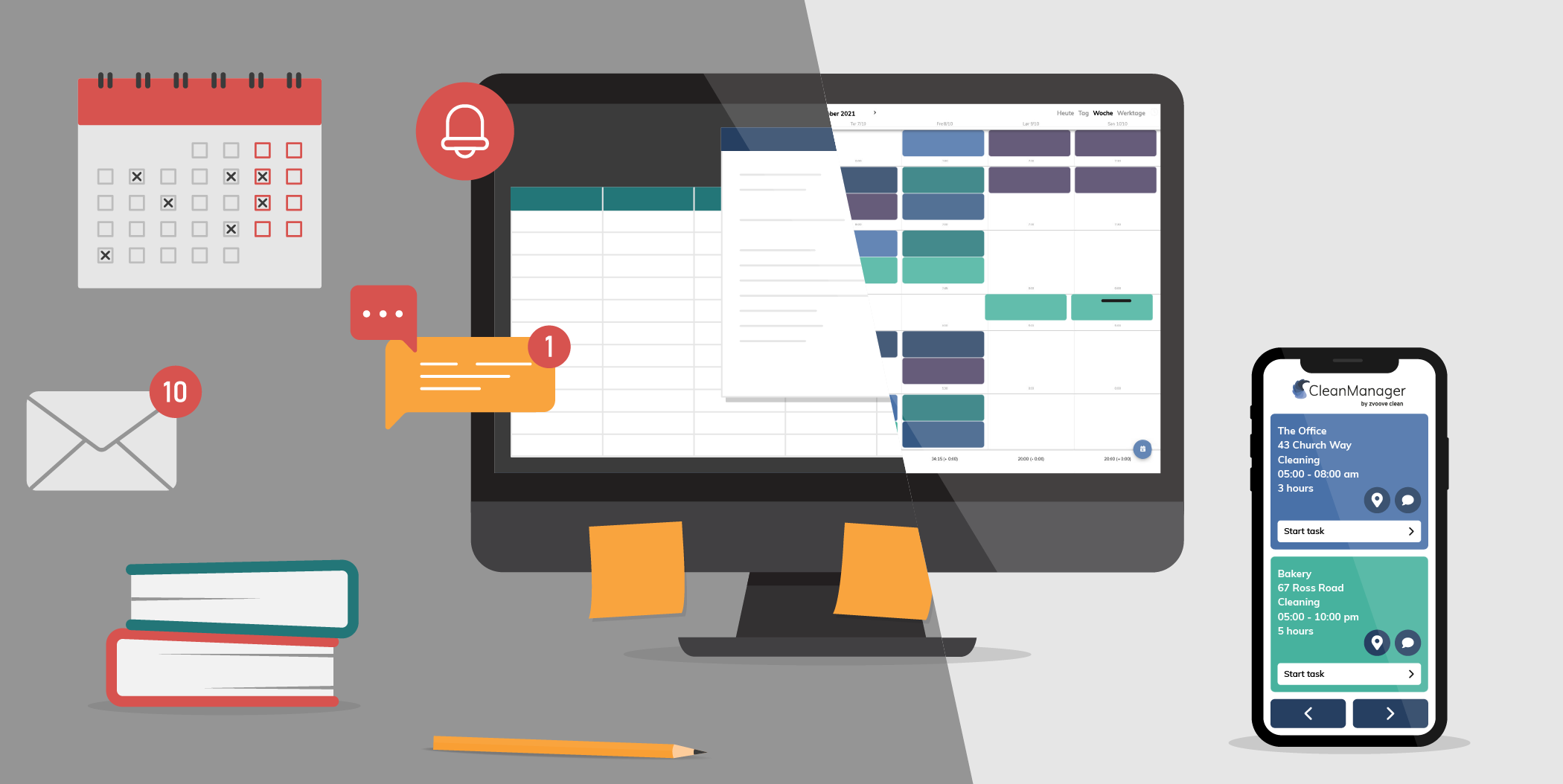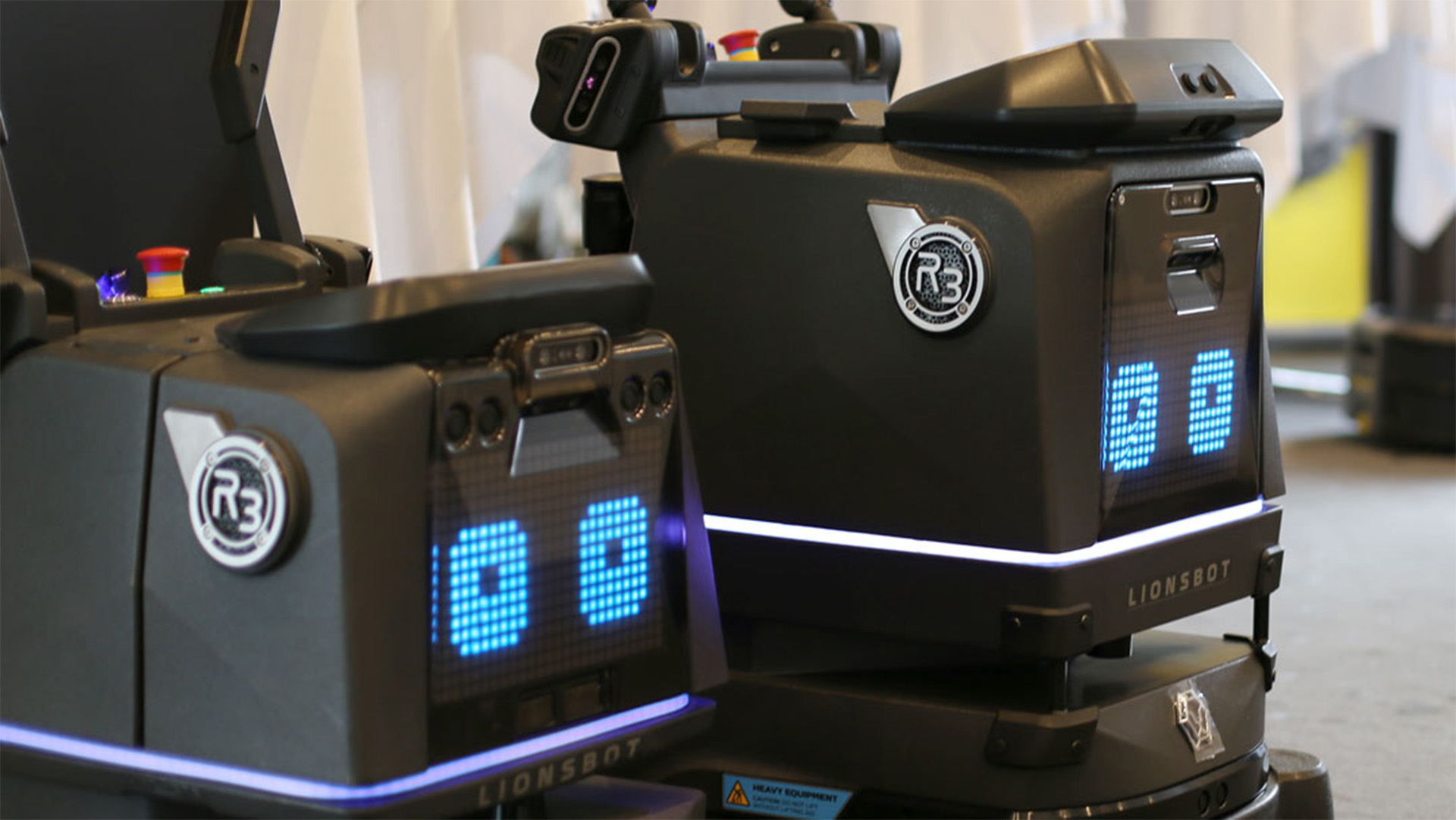Most cleaning companies start out with whatever tools are already at hand — a shared calendar, a group chat, or a spreadsheet. And for a small team, that can feel like enough.
In this article, we’ll answer the key questions UK cleaning companies ask when weighing up generic vs. tailored cleaning business software, and show why making the switch is more than just an upgrade — it’s a way to run a more reliable and scalable business.
What Is the Difference Between Tailored and Generic Software?
Many UK cleaning companies begin with free or familiar tools. They’re quick to set up, staff already know how to use them, and for a small team they often feel like enough.
But over time the limits become clear: evenings spent adjusting rotas manually, sending reminders in chat threads, or double-checking timesheets before payroll. What started as a simple fix soon turns into a hidden cost — lost evenings, frustrated staff, and even unhappy clients.
That’s the turning point many cleaning companies face: do you keep using generic tools that were never built for the industry — or switch to commercial cleaning management software designed around cleaning workflows? Let’s start with what the two software types are:
Generic or off-the-shelf software is designed for as many businesses as possible. It usually covers only common needs, is typically low-cost or free, and can be adapted for simple scheduling or record-keeping. The trade-off is that it isn’t built to handle the specific demands of cleaning companies as they expand.
Tailored or industry-specific software is created with cleaning businesses in mind. It supports the workflows that matter most — such as rota planning, timesheets, quality inspections, and compliance. Instead of forcing your business to fit around the software, it adapts to the way you work and grows with your company.

What Are the Pros and Cons of Generic and Tailored Software?
Many cleaning companies in the UK start with generic tools because they’re familiar and easy to set up. A shared calendar or spreadsheet can feel like enough when the team is small. But as soon as operations expand, the cracks begin to show.
Common issues with generic tools include:
- Scheduling: Manual edits with no support for multiple sites or roles
- Communication: GDPR risks and no audit trail
- Timesheets: Spreadsheets prone to errors, making payroll unreliable
- Integration: No link between scheduling, payroll, and quality checks
To put it simply: generic tools get the job done at first, but they rarely keep up with the growth and compliance demands of a cleaning company.
Here’s an overview of the pros and cons of both options:
| Type | Pros | Cons |
|---|---|---|
| Generic tools |
|
|
| Tailored cleaning software |
|
|
Which Type of Software Meets Cleaning Business Needs Best?
When comparing tools side by side, the difference becomes even clearer. Generic solutions provide a starting point, but tailored cleaning scheduling software is built to solve the specific challenges of scheduling, time tracking, communication, quality, and compliance.
Here’s how the two approaches stack up:
| Business Need | Generic Tools | Tailored Cleaning Software |
|---|---|---|
| Staff scheduling & rotas | Manual edits, no conflict checks | Automated rota updates, roles, absence handling |
| Time tracking & payroll | Manual timesheets, prone to errors | Digital check-in/out, auto timesheets linked to jobs |
| Communication | Message groups, GDPR risks, no audit trail | Secure, role-based messaging inside the platform |
| Business Need | Generic Tools | Tailored Cleaning Software |
|---|---|---|
| Quality control | Paper or spreadsheet checklists, no updates | Mobile app checklists with photos & instant reports |
| Compliance (UK/GDPR) | No access control, limited retention settings | Role-based permissions, data retention, audit-ready |
| Scalability | Works at micro-team level but breaks down fast | Designed to grow with multi-site cleaning businesses |
How Do You Choose the Best Cleaning Management Software for Your Company?
When it’s time to move beyond generic tools, the best software is the one that fits the way your cleaning business actually works. There are a few key factors to consider:
- Designed for cleaning workflows: Rota planning, timesheets, quality inspections, and reporting tailored for cleaning operations.
- Easy adoption by staff: A platform that supervisors and cleaners can pick up quickly, without endless training.
- Local support and compliance features: Role-based access to sensitive data, GDPR-aligned storage, retention policies, and safe communication channels.
- Cost: Tailored software may involve a higher upfront investment, but it pays off quickly. Automated rotas and timesheets save hours of admin, compliance risks are reduced, and managers spend less energy firefighting and more time on growth.
Generic tools can carry a business through the early days, but they aren’t built to scale. Commercial cleaning business software is designed for the long term — helping UK companies stay compliant, save money, and deliver a more professional service.
If you want to learn more about how to successfully integrate cleaning software, then check out our article Successful Cleaning Software Implementation Made Simple.

The Tailored Alternative to Generic Software Is CleanManager
CleanManager is more than an example. It’s a platform built for cleaning companies from the ground up. With CleanManager, UK cleaning businesses get access to an all-in-one cleaning business management system that combines scheduling, client management, audits, payroll, and more — all tailored to the demands of cleaning operations.
A few highlights of what CleanManager delivers:
Smart scheduling and task management: Plan and assign work across teams and sites. If someone is absent, tasks can be reassigned instantly, ensuring every job is always covered.
Time tracking & payroll integration: Staff check in and out digitally, timesheets are generated automatically, and wages are calculated accurately without manual work.
Quality control & audits: Supervisors can carry out inspections using mobile checklists, capture photos, add notes, and generate reports in real time.
Compliance & data safety: All data is stored securely with GDPR alignment, role-based access, and retention policies — a safer alternative to generic apps.
Scalability & centralisation: Instead of juggling multiple tools, everything lives in one cloud-based platform that grows with your business.
- Built with the industry, for the industry – developed in collaboration with cleaning companies, so the workflows fit real life.
- Designed to grow with you – from small teams to multi-site operations, the platform scales as your business expands.
- Stronger client relationships – share reports, updates, and proof of quality directly with clients, showing transparency and professionalism.
- Peace of mind on compliance – GDPR-ready, audit-friendly, and safe for staff communication.
- Real savings in time & money – less admin, fewer errors, and more focus on service and growth.
See how CleanManager supports cleaning companies across the UK – request a free trial today.
FAQ: Generic vs. Tailored Cleaning Software
Is generic software good enough for cleaning companies?
Generic tools like shared calendars, chat apps, and spreadsheets can work for very small teams. But as soon as you have more staff, sites, or compliance needs, they quickly show their limits.
What are the main risks of relying on generic tools?
The biggest risks are errors in rotas and timesheets, GDPR issues with staff data, and wasted admin time. These problems often grow as the business scales.
How does tailored cleaning software improve scheduling?
It automates rotas, handles multiple sites, and updates staff instantly. No more late-night manual edits or chasing missed shifts.
Does tailored software help with GDPR in the UK?
Yes. Tailored cleaning platforms have role-based access, safe data storage, and audit-ready reporting — all designed to meet GDPR requirements.
Is tailored software more expensive than generic tools?
The upfront cost is higher than free tools, but it saves money in the long run. Automated timesheets, reduced errors, and fewer compliance risks quickly outweigh the initial investment.
What makes CleanManager different from other options?
CleanManager is built specifically for cleaning companies. It brings scheduling, time tracking, quality checks, payroll, and GDPR compliance into cleaning management system — supported locally in the UK.
Is tailored software suitable for small cleaning companies too? Yes. Even smaller teams benefit from having everything in one place. While very small teams may manage with generic tools at first, tailored cleaning company software gives them room to grow without adding admin stress.



